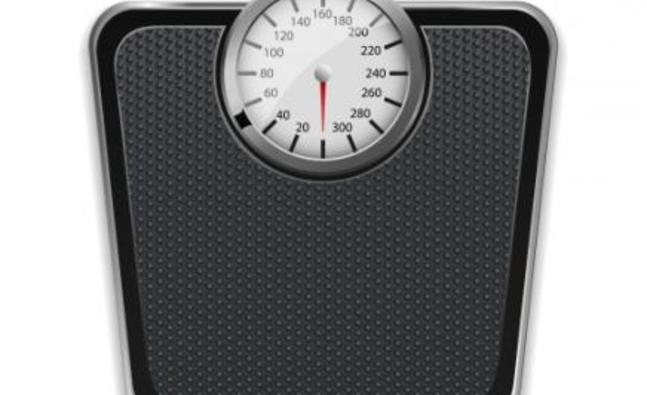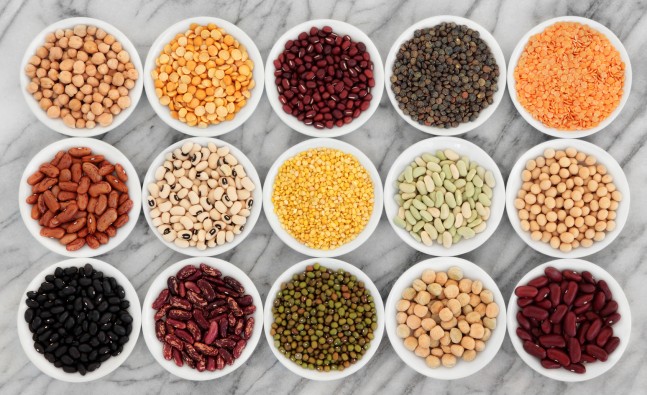Follow This Formula For Breakfast to Lose Weight
This article was written by Jenny Sugar and repurposed with permission from POPSUGAR Fitness.
Isn't breakfast wonderful? Not only is it delicious and full of so many of our favorite foods, but you can also use it as a tool to lose weight. Want to know how? We've enlisted the expertise of two nutritionists—Stephanie Clarke, R.D., and Willow Jarosh, R.D.—to share the perfect formula to make a scrumptious and satisfying breakfast that will help you lose weight. Follow their advice below to start seeing results.
Calories
Aim for a range between 300 and 400 calories. If you're trying to lose weight, stick with the 300 to 350 range. And if you're trying to maintain weight—especially if you're working out—shoot closer to 350 to 400 calories.
Carbs
About 45 to 55 percent of your breakfast calories should be devoted to carbs, which is about 40 to 55 grams of carbs. Skip sugary and overly processed foods or those made with enriched white flour, and choose whole grains, fruits, and veggies.
Protein
About 15 to 20 percent of your breakfast calorie amount should be protein, which works out to about 13 to 20 grams. Getting enough protein at breakfast is important for keeping you satisfied throughout the morning. And studies have shown that getting at least 20 grams of protein at breakfast may help you lose weight as well. Eggs, dairy products, soy milk, nuts and seeds, and whole grains are great sources.
Fats
Shoot for about 10 to 15 grams, which is about 30 to 35 percent of your total breakfast calories. Instead of saturated fats like bacon and cheese, go for monounsaturated fats—such as olive oil, nuts and seeds, and avocado.
Fiber
Aim for about 25 percent of your recommended daily total of 25 grams per day. That works out to about 6 grams, but it's okay to go above that, as long as it doesn't bother your digestive system. Berries, pears, apples, greens, and other veggies, nuts and seeds, and whole grains can help you reach that goal.
Sugars
If you follow the equation for carbs above, then you won't have to worry about going overboard on sugars, especially if you're eating a combination of foods like fruits, whole grains, and dairy products. But for a ballpark number to keep in mind, stick to 36 grams or fewer. And when it comes to added sugar, try not to exceed 6 —that's about 1.5 teaspoons worth of any sweetener (white sugar, brown sugar, maple syrup, honey, or agave).
Timing
Ideally, you should eat breakfast within 30 to 60 minutes of waking up. If you're not keen on eating anything big first thing, split this meal up into two parts: have something light close to waking up and the other half about an hour and a half later. This also works well if you're a morning exerciser and prefer not to have a full stomach while you work out. If you're exercising, you can aim to have the more carbohydrate-based portion of your breakfast (fruit and toast) prior to working out and the more protein-centric portion afterward.
Click HERE to see meals you should try in the morning to lose weight from POPSUGAR Fitness!
More from POPSUGAR Fitness:
Lose Weight With This Nutritionist-Approved Dinner Equation
When It Comes to Weight Loss, We're All About Complex Carbs
Nutritionists Reveal the Biggest Weight-Loss Mistakes
-
Top 3 tips for your weight-loss journey
-
Burn calories by staying on your feet
-
Cut the sugar and slim your waistline
-
Why eating late and sleeping in leads to weight gain
-
Im Sticking to My Diet Perfectly—So How Come Im Not Losing Weight?
The only thing worse than not losing weight is feeling like youre doin
-
5 Really good reasons to eat fewer animal products
- DON'T MISS
- Skip the bacon and the weight gain
- Use a steamer to help you lose weight
- Before you start a weight loss plan...
- How to survive the summer social scene (without gaining weight)
- How Many Litres Of Water Should You Drink Daily To Lose Weight?
- 15 Vegetables that burn calories
- Stress & Weight Gain
- Choose green tea instead of coffee
- Tips for a balanced diet and weight loss plan: What are the non-negotiables?
- All You Need To Know About Aloe Vera For Weight Loss




